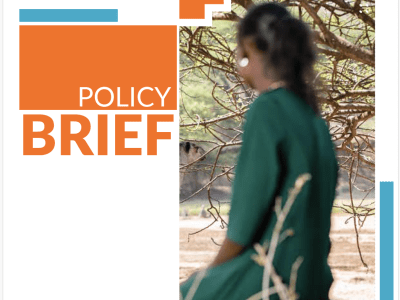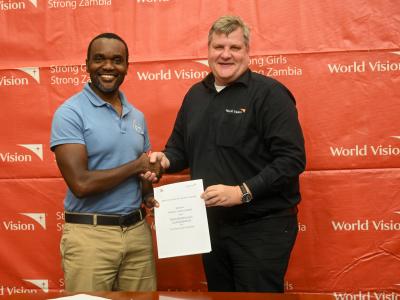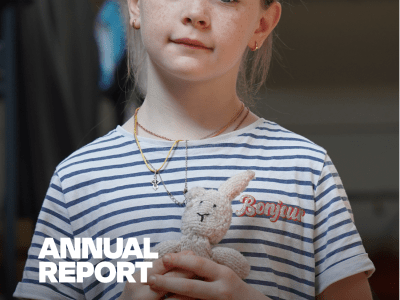article / January 28, 2026
How a Promised Job Became Trafficking in Persons: Mampho’s Story of Survival
Deceived by a job offer, Mampho was trafficked in South Africa. With World Vision support, she now runs a spaza shop for her child.
article / January 28, 2026
How Unemployment Fuels Trafficking in Persons: Lineo’s Story of Survival and New Beginnings
Lineo’s search for work led to trafficking and abuse in South Africa. With World Vision support, she rebuilt her life through a clothing business.
article / February 9, 2026
Voices That Matter: How Citizens and Leaders Are Rewriting the Future Through Social Accountability
In Svay Rieng, a simple idea—connecting citizens with local authorities—has sparked a wave of transformation. Through the Social Accountability Framework (ISAF), volunteers like Keav Sothea and local leaders are rewriting the future of public services. From cleaner health centers to improved schools and transparent governance, this initiative proves that when communities speak, progress answers.
publication / February 4, 2026
East Africa Region Policy Brief on Ending Female Genital Mutilation (FGM) 2023
World Vision is influencing the adoption and implementation of policies relating to FGM in Kenya, Sudan, Somalia and Sudan. The policy brief highlights strategic policy recommendations targeting national governments, regional institutions donors faith and community leaders.
article / February 16, 2026
World Vision Zambia and Epicity Marathon Partner to End Period Poverty
World Vision Zambia (WVZ) and Epicity Marathon Limited officially signed a Memorandum of Understanding (MoU), marking the beginning of a partnership grounded in mutual respect, shared values, and a strong commitment to social impact.
publication / January 23, 2026
Africa Union Convention on Ending Violence Against Women and Girls
This is a child friendly version of the Africa Union Convention on Ending Violence Against Women and Girls.
article / February 17, 2026
From Struggle to Stability: How World Vision Integrated Support Transformed Phepo–E–Ntle Matsekha Farmers Cooperative
Once struggling with high poultry losses and poor harvests, Phepo–E–Ntle Matsekha Farmers Cooperative now grows stronger with World Vision support
publication / February 18, 2026
Annual Report 2025: Standing With Children Through Four Years of War in Ukraine
As the Ukraine Crisis Response enters its fifth year, the war continues to devastate millions of lives, particularly children. Over the past four years, World Vision Ukraine has reached more than 2.3 million people, including over 1 million children, providing critical support in education, mental health, protection, cash assistance, livelihoods, basic needs services and winterisation.






